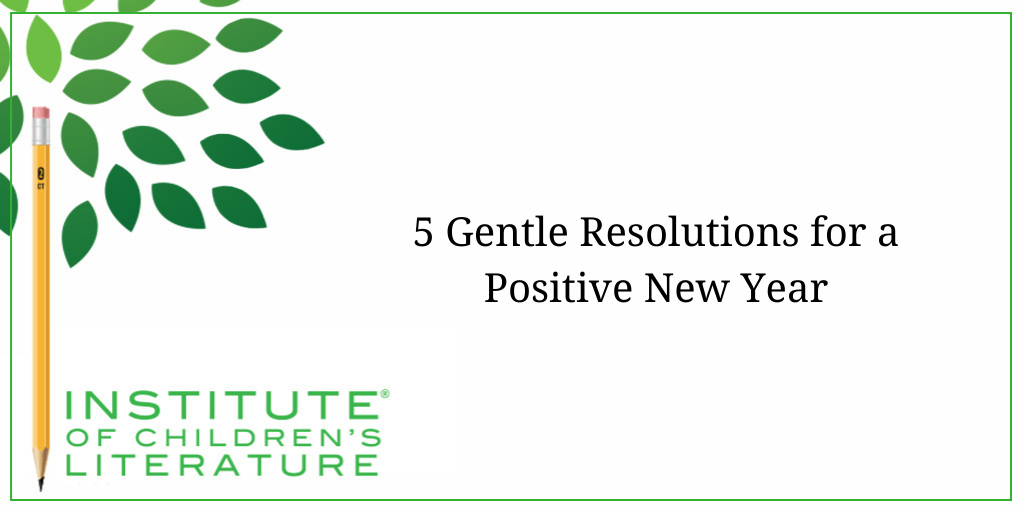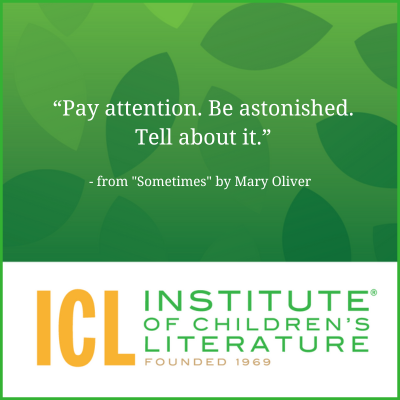
5 Ways Writers Can Prep for 2025 Goal Setting
Before we roll on to the new writing year, let’s harness our optimism for the blank slate before us and prepare for our 2025 Goal Setting just for writers.

It’s that time again. A new year begins and we enter it with a mix of optimism for what we might accomplish this year and remorse for what we didn’t accomplish last year. For the sake of survival, the human brain prioritizes negativity so we can avoid situations that might have negative results (like being eaten by a bear). If a multitude of lovely things happened last year, it’s the near misses and the things you didn’t accomplish that loom largest in your memory.

Too often we face the blank page of writing with dire worries about whether we’ll write something publishable. This kind of worry tends to suppress our creative side. Creativity loves to play. So, if we want a new year that is more productive and more surprising, we need to include play in our writing life. Play can involve silly writing prompts and writing games. Any search engine can deliver links to writing games and writing prompt lists and generators. Most writing games you find will be created by teachers to get students engaged in writing. These same games can add a whimsical side to our writing practice.
Writing doesn’t need to be misery. It can be whimsy and ridiculousness and spontaneity. Most writing prompts and writing games won’t produce a result that gets published, but the process of giving our creative side a chance to play will create new ideas and new ways of looking at writing. Creativity can easily be stifled and that never gives good results. Thankfully, waking up our creative side is far more fun than stifling it. So, inject some fun into your writing.
One excellent writing game to begin with is the “write a story using only [a small number of] words.” The story can’t say much but needs to imply far more. One famous example of a six-word story is “For sale: baby shoes. Never worn.” These kinds of super short stories are popular Facebook memes and they can stimulate our creative brains. They help us practice writing that doesn’t say everything.
Since writers (especially newer writers) can be prone to over-explaining, this kind of writing challenge is not only fun, it’s actually helpful to our skill building. If you want an added challenge, consider throwing genre into the mix. Write a horror story in ten words or less. Or write a mystery in ten words or less. This is only one example of adding games to our writing practice to result in more play and less fear in our writing.
Most of us don’t reward writing enough. We tend to focus instead on beating ourselves up over our failures. Resolve to set yourself some writing goals with prizes at the end. For example, if you do write every day for a week, you get a day off to read, or you get to change the location for your next writing session to somewhere fun like a coffee shop.

The best way to create these goal/prize lists is to first brainstorm the prizes. What sorts of things do you love to do, but don’t treat yourself to very often? Is it a fancy coffee from a coffee shop? Or an afternoon spent watching a streaming movie while curled up with popcorn? Create a nice long list, then you can pull prizes from it as you decide what goals you’d like to accomplish in the days and months ahead.
Not only does this help your motivation to write, it also gives you permission to do things you love to do, guilt-free. After all, you earned it.
One of the things that will help you learn to be more supportive of your own efforts is to be supportive of someone else—and pay attention to the things you say and the way you are supportive of a fellow writer. Offer yourself the same kindnesses. There are so many writing communities, both online and in person.
Organizations like SCBWI help members connect with other local members. This gives you the opportunity to connect with someone and be supportive of their writing efforts. It can also give you the chance to get support in return. Keep in mind this has to be a two-way street. Beware of people who seem to soak up your kindness over and over and over and return nothing. Don’t be afraid to be picky about who you offer your kindness to, especially in a face-to-face situation. When it becomes a pattern of taking without giving back, it’s probably time to step away from that writing connection and make a new one. The writing community is massive, so there is always another connection to be made.
For years, I wished I could go on a writing retreat. I dreamed of it. I loved the idea of hanging out with writers who knew both the pluses and minuses of this creative life. But somehow, I always had a reason why I couldn’t indulge myself in that way.

I realized that if my husband or daughter had talked over and over about something they really wanted to do, I would have made the way for them to do it. So, I decided to do the same for myself. I resolved to go to the workshop, and I arranged my schedule around it. I made it clear to everyone that I was going. Then I went. And it was wonderful. I was so glad I went. I made connections that invigorated me.
This year, pick one of the writing things you’ve thought about and put off because you weren’t sure you deserved it—and do it. Support yourself the way you support others. Buy the writing book you’ve been putting off. Go on the retreat you’ve dreamed about. Or take the writing course you’ve been considering. Not only will taking the plunge for the sake of your writing refresh and inspire you, but it will go a long way to help you see your writing as something important enough to invest in.
Most of us, if we were willing to admit it, have things we wish people would say to us. A few of us have had those amazing moments when people do say great things. It would be helpful if we could dip into those kinds of positive moments whenever we need them.
So why not?

Maybe you want to throw in a reminder of that time you won a quiz bowl or the time you were the only one in a room that knew the meaning of an unusual word. Whatever positive memories and remarks you can come up with, pop them into the jar. Then when you’ve filled it up, it’ll be there on the tough days when you need a kind word or the memory of a kind word.
This may seem like less important things to focus on as we enter the new year, but the rewards for having more inspiration, a more playful attitude toward writing, and the strength that comes from believing in ourselves will bring us better rewards for 2024 than we could ever have expected.
Happy New Year and joyful writing to you.
With over 100 books in publication, Jan Fields writes both chapter books for children and mystery novels for adults. She’s also known for a variety of experiences teaching writing, from one session SCBWI events to lengthier Highlights Foundation workshops to these blog posts for the Institute of Children’s Literature. As a former ICL instructor, Jan enjoys equipping writers for success in whatever way she can.

Before we roll on to the new writing year, let’s harness our optimism for the blank slate before us and prepare for our 2025 Goal Setting just for writers.

Writers can be thin-skinned when it comes to getting feedback on their work. Let’s look at 4 ways to positively deal with constructive criticism!

Rejection is part of the territory when it comes to being a writer. Today we offer reflection for writers to help redirect your efforts after a rejection.
1000 N. West Street #1200, Wilmington, DE 19801
© 2024 Direct Learning Systems, Inc. All rights reserved.
1000 N. West Street #1200, Wilmington, DE 19801
© 2024 Direct Learning Systems, Inc. All rights reserved.
1000 N. West Street #1200, Wilmington, DE 19801
© 2024 Direct Learning Systems, Inc. All rights reserved.
1000 N. West Street #1200, Wilmington, DE 19801
© 2025 Direct Learning Systems, Inc. All rights reserved.
1000 N. West Street #1200, Wilmington, DE 19801
©2025 Direct Learning Systems, Inc. All rights reserved. Privacy Policy.
2 Comments